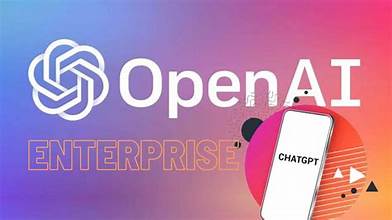OpenAI announced on Monday that it will launch a version of ChatGPT aimed at large corporations, further expanding its influence in the field of artificial intelligence and backed by its initial investor, Microsoft.

The company stated in a blog post that ChatGPT Enterprise offers increased security, privacy, and quicker access to its AI technology.

OpenAI revealed that among the first clients to adopt ChatGPT Enterprise are companies such as Block, Carlyle, and Estée Lauder.
When OpenAI released its ChatGPT chatbot targeting the general public in November last year, it opened the floodgates for intensive use of generative AI in everyday tasks, ranging from writing to coding, the platform garnered 100 million monthly active users by January this year.
A Reuters/Ipsos poll indicated that many people in the United States used ChatGPT to assist with work-related tasks, despite employers not encouraging it, with the launch of ChatGPT Enterprise, OpenAI hopes that employers will feel more at ease incorporating ChatGPT into their workflow.
Microsoft, which invests billions of dollars in OpenAI, already provides companies access to ChatGPT through the Azure OpenAI service, however, companies need to be Azure cloud computing customers to avail of this service.
OpenAI stated that subscribers of ChatGPT Enterprise won’t need to subscribe to the Azure platform.
OpenAI and Microsoft have offered integrated services in the past, and the extent of their competition for customers is not entirely clear.
The announcement of ChatGPT Enterprise, available for companies as of today, is believed to be the biggest move since the launch of ChatGPT in November last year.
Brad Lightcap, COO of OpenAI, revealed to CNBC that the company began developing ChatGPT Enterprise “less than a year ago” and received assistance from over 20 companies of various sizes and industries.
ChatGPT Enterprise includes unrestricted access to GPT-4, faster performance up to twice that of previous versions, and API rate limits.
Lightcap stated that pricing details will not be announced immediately and will depend on “use cases and the size of each company” from their perspective.”

